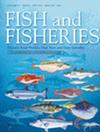整顿区域渔业管理组织的气候变化事务
IF 6.1
1区 农林科学
Q1 FISHERIES
引用次数: 0
摘要
气候变化不仅对区域渔业管理组织管辖范围内的邻国,而且对相邻区域渔业管理组织之间的跨界鱼类种群的生物学、丰度和分布产生重大影响。以南太平洋长鳍金枪鱼(Thunnus alalunga)为例,我们强调了区域渔业管理组织如何需要更确定地了解气候变化对其管辖范围内的跨界种群的影响。我们确定了应有助于区域渔业管理组织调整其科学进程的四个研究领域:加强对目标种群生物学变化的了解;加强数据收集以支持建模;改进了“单位努力渔获量”(CPUE)模型,以便更好地反映气候变化对鱼类丰度的影响;确保科学建议对气候变化具有适应性和健壮性,包括通过实施经过测试的收获战略。对这些研究领域的投资应使区域渔业管理组织能够改进为在气候变化期间维持跨界鱼群和提高渔业业绩而设计的管理措施的基础科学。本文章由计算机程序翻译,如有差异,请以英文原文为准。
Putting Regional Fisheries Management Organisations' Climate Change House in Order
Climate change is expected to have significant impacts on the biology, abundance and distribution of transboundary fish stocks, not only among neighbouring countries within the jurisdictions of regional fisheries management organisations (RFMOs) but also between adjacent RFMOs. Using South Pacific albacore tuna (Thunnus alalunga
求助全文
通过发布文献求助,成功后即可免费获取论文全文。
去求助
来源期刊

Fish and Fisheries
农林科学-渔业
CiteScore
12.80
自引率
6.00%
发文量
83
期刊介绍:
Fish and Fisheries adopts a broad, interdisciplinary approach to the subject of fish biology and fisheries. It draws contributions in the form of major synoptic papers and syntheses or meta-analyses that lay out new approaches, re-examine existing findings, methods or theory, and discuss papers and commentaries from diverse areas. Focal areas include fish palaeontology, molecular biology and ecology, genetics, biochemistry, physiology, ecology, behaviour, evolutionary studies, conservation, assessment, population dynamics, mathematical modelling, ecosystem analysis and the social, economic and policy aspects of fisheries where they are grounded in a scientific approach. A paper in Fish and Fisheries must draw upon all key elements of the existing literature on a topic, normally have a broad geographic and/or taxonomic scope, and provide general points which make it compelling to a wide range of readers whatever their geographical location. So, in short, we aim to publish articles that make syntheses of old or synoptic, long-term or spatially widespread data, introduce or consolidate fresh concepts or theory, or, in the Ghoti section, briefly justify preliminary, new synoptic ideas. Please note that authors of submissions not meeting this mandate will be directed to the appropriate primary literature.
 求助内容:
求助内容: 应助结果提醒方式:
应助结果提醒方式:


